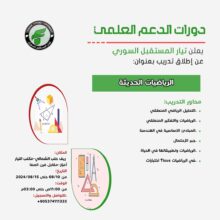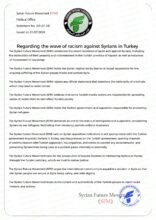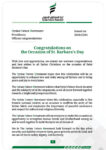Gulf Arab States and Syria, Where To?

At the onset of the Syrian revolution, the Gulf Arab states adopted varying stances in general. The Gulf position on the Syrian revolution underwent three major shifts or turns:
The first was characterized by calls for reform and dialogue, then proposing an Arab solution, followed by delegitimizing Assad and calling for his resignation, and finally demanding international intervention and arming the Syrian opposition.
At that time, the Arab Committee’s efforts to resolve the Syrian crisis were led by “Sheikh Hamad bin Jassim,” the Prime Minister and Foreign Minister of Qatar. Relations between Qatar and Syria formed a strategic alliance, while a decline in relations between Syria and Saudi Arabia was noted due to Bashar’s increased consolidation of ties with Iran at the expense of Syria’s shared interests with the Arab Gulf states.
As for the United Arab Emirates, there was a distinction in its economic relations with Syria; with investments exceeding 10 billion dollars, making it the foremost investor in Syria.
Similarly, Kuwait is considered the second-largest investor in Syria after the UAE, with 6 billion dollars in investments.
Accordingly, the Gulf behavior did not deviate from this framework in the initial stage of the Syrian revolution outbreak.
The Gulf Arab states adopted clearer positions towards the Assad regime in Syria compared to other Arab countries in the phase of peaceful protest! When Gulf calls shifted from dialogue and reform to demands for change. This stage was marked by political, media, and economic escalation. The Gulf states announced the withdrawal of their ambassadors from Damascus, and Saudi Arabia, Bahrain, and Kuwait announced the freezing of all economic activities with Syria.
In the third phase, the Gulf states began supporting the armed Syrian opposition, with Saudi Arabia and Qatar announcing financial and military support for the Syrian opposition, while the UAE announced its humanitarian support for the Syrian people.
The Gulf Arab states, including Saudi Arabia, Qatar, and the United Arab Emirates, have provided significant support to the armed Syrian opposition during the conflict in Syria.
- In northern Syria, factions supported by Qatar and Turkey, such as the Islamic Movement of Ahrar al-Sham, were most influential.
- In Eastern Ghouta near Damascus, the Saudi-supported faction, Jaysh al-Islam, was most influential.
- The United Arab Emirates provided logistical support to the Syrian opposition, such as residence permits for more than 100,000 Syrians since 2011.
- In addition to political and international stances and military support for the MOC and MOM operations rooms.
After Russia’s military intervention in 2015, the positions of the Gulf Arab states changed significantly, and there are several reasons for this change:
- New alliances: After the Russian intervention, Russia began strengthening its relations with Iran, Turkey, Israel, Egypt, and many Gulf states, leading to changes in regional balances and affecting the positions of the Gulf states.
- Concern about Russian influence: This led to changes in the positions of the Gulf states.
- Disputes with the United States: There were disagreements between the Gulf Arab states and the United States regarding American policy formulations in Syria. These disagreements led to a change in the positions of the Gulf Arab states, as evidenced by Riyadh’s stance on the Syrian Negotiations Commission, and the Riyadh 1 and 2 conferences, where Saudi Arabia then advised the Syrian opposition to move to a European country because the U.S. did not want to support them, and Saudi Arabia could not provide more support, resulting in Riyadh 2 being held under Russian auspices, with the participation of the Moscow and Cairo platforms at the expense of Syrian opposition hawks like Riyad Hijab and others.
- Security challenges: There were security challenges related to the Syrian conflict, including concerns about the return of jihadists to the Gulf Arab states. These challenges led to changes and variations in the positions of the Gulf Arab states on the Syrian revolution issue.
All of this led to the formation of two pivotal periods in the Syrian present:
1- The period of withdrawal from Eastern Ghouta after the Russian intervention, handing it over to the Syrian regime, and stopping support for the armed factions.
2- Abandoning the factions in the south due to the American desire under Obama and handing over the military factions to Russia, or their displacement to northern Syria under Turkish control.
Recently, Gulf positions towards the Syrian crisis have witnessed significant developments, including:
- Re-engagement with Syria: Gulf states are re-evaluating their relations with the Assad regime. However, U.S. sanctions, which prevent investment and reconstruction operations, pose an obstacle to Syria’s true reintegration into the region.
- Rapprochement with the Syrian Regime: In recent months, the re-engagement of the Gulf states with Syria has gained momentum. In early May, the head of Saudi intelligence, General Khalid Al Humaidan, met with his counterpart in Damascus and also with Assad.
- Diplomatic Developments: There are unconfirmed reports that the Saudis are about to conclude a diplomatic normalization agreement with the Assad government. Syrian Minister of Tourism Rami Martini led a Syrian delegation to Riyadh to attend a meeting of the Middle East Committee of the World Tourism Organization, signaling a diplomatic advancement including inviting Bashar al-Assad for Syria’s seat in the Arab League, and attempting to establish a roadmap based on the step-by-step initiative previously discussed in our scientific office and described as a “new Syrian Taif”.
- Economic Cooperation: In late June 2021, Syrian Airlines announced the resumption of direct flights to Dubai starting from July 3.
From all this, it can be concluded that the Gulf states want to help Syrians not out of love for democracy, as the Gulf states are not democratic, but through other gateways that serve their interests. They cannot deviate from the international course, which the Gulf states try to catch through their active and influential diplomacy, building their moves towards the Syrian file in general and the Assad regime in particular.
The new stance following the Saudi-Iranian agreement in Beijing may indicate a Gulf intervention outside the framework of American will or Russian desire. Despite all the above, the Arab, especially the Gulf, embrace cannot be relied upon in the Syrian case because:
- The division of the current Syrian cake, keeping the Arabs from having their share except through neighboring and influential countries.
- The absence of land or sea borders between Syria and the Gulf states, leaving Jordan to contend with the Syrian regime and Iran’s Captagon smuggling, after Riyadh refused to take over the classification of Syrian factions.
- The quagmire-like complexity of the Syrian situation, divided into four zones of influence with diverse intelligence, military, and political compositions, which may drown any internal party in details and not entice the Gulf states to take notable stances, especially with the world focused on the Al-Aqsa floods, potentially sinking Assad’s regime at any moment under a tsunami imposed by Hezbollah’s antagonism and the wavering stance of the Islamic Republic of Iran.
References:
- AGSIW | Gulf Re-engagement with Syria: A Path Towards a Dead End
- Omran Center for Strategic Studies – Gulf States: Developments and Future of the Syrian Crisis (omrandirasat.org)
- Ten Years After the War: Is Ending the Syrian Crisis Still Possible? – BBC News Arabic
- Gulf States and the Syrian Crisis: Levels of Action and Outcome of Positions | Al Jazeera Center for Studies (aljazeera.net)
- Towards a Realistic Assessment of the Gulf States’ Reception of Syrians | The Washington Institute
- Increasing Military Aid to the Syrian Opposition? Some Facts on the Ground | Brookings
- Report: Qatar Crisis Embarrasses Syrian Opposition – 24.ae
- Effects of the Gulf Crisis on the Status of the Syrian Opposition – DW – 2017/7/4
- The Egyptian Stance on the Russian Intervention in Syria and Relations with the Gulf States – Al-Ahram Center for Political and Strategic Studies (ahram.org.eg)
- Harvest of Russian Intervention in Syria After 5 Years (alarabiya.net)
- Did Russia’s Invasion of Ukraine Reveal Cracks in Washington’s Relationship with Gulf States? – BBC News Arabic
- Russian Intervention in Syria.. Does It Worry America? | Al Jazeera Knowledge (aljazeera.net).
Bilal Muhyiddin
Research and Studies Department
The Scientific Office
Syrian Future Movement (SFM).






